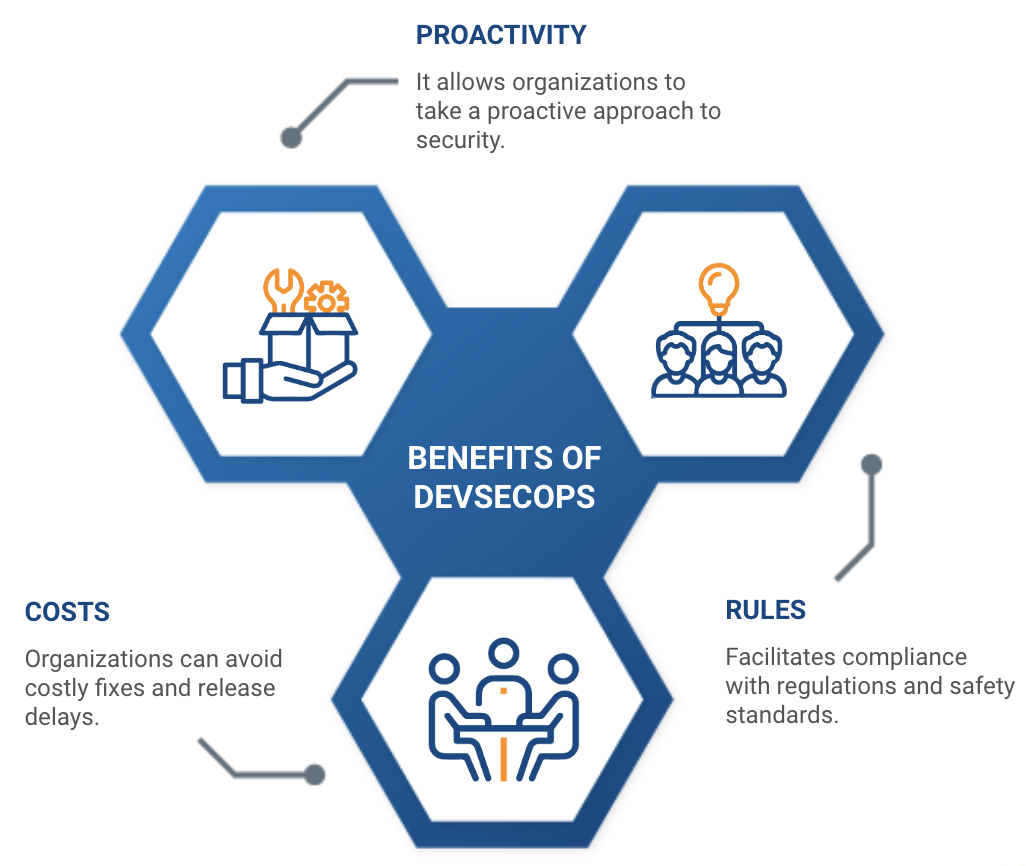
In today's digital environment, software security is a top priority for organizations of any size. As cyber threats become more sophisticated and prevalent, traditional security approaches are falling short.
This is where DevSecOps comes into play, an emerging practice that integrates security into the software development lifecycle. With this blog, we seek to explore the role of DevSecOps in modern software security, its importance, and how it can benefit organizations in protecting their digital assets.

What is DevSecOps and why is it important?
DevSecOps, a combination of "Development", "Security" and "Operations", is a philosophy that seeks to integrate security practices into the software development process from the beginning. Unlike the traditional approach, where security is added at the end of the development cycle, DevSecOps promotes continuous collaboration between development, operations, and security teams.
Importance of DevSecOps
Integrating security early into the development process allows vulnerabilities to be detected and addressed before software reaches production. The cost of fixing a vulnerability during production can be up to 30 times higher than during development.
DevSecOps not only helps reduce these costs, but also improves agility and efficiency by enabling faster response to emerging threats.

Main benefits of implementing DevSecOps
Proactive security improvement
Implementing DevSecOps allows organizations to take a proactive approach to security. Security testing and code reviews are performed on an ongoing basis, helping to identify and mitigate vulnerabilities before they become serious problems.
Reduced costs and development time
By identifying and resolving security issues during development, organizations can avoid costly fixes and release delays. According to a DevOps Institute survey, companies that adopt DevSecOps practices report a 30% reduction in security costs and a 20% decrease in development time.
Compliance with regulations and standards
Integrating security from the start also makes it easier to comply with security regulations and standards, such as GDPR, HIPAA, and PCI-DSS. By incorporating security checks and audits throughout the development lifecycle, organizations can ensure their applications meet regulatory requirements and avoid penalties for non-compliance.

How to implement DevSecOps in your organization
1. Encourage collaboration between teams
Effective DevSecOps implementation requires close collaboration between development, operations, and security teams. Establishing clear and continuous communication between these groups is essential to integrating security into every stage of the development process. Using collaborative tools and communication platforms, such as Slack and Microsoft Teams, can facilitate this collaboration.
2. Automate security in the CI/CD pipeline
Integrating security tools into the CI/CD pipeline allows security analysis and vulnerability testing to be performed automatically during the development process. Tools like OWASP ZAP and SonarQube provide real-time security analysis and vulnerability scanning, helping to ensure that released code is secure.
3. Train staff in security
It is crucial that development and operations teams receive training in security practices. Continuing education on security best practices, emerging threats, and security tools can help improve the effectiveness of the DevSecOps approach. Training programs and certifications, such as those offered by (ISC)² and CompTIA, are valuable resources for keeping staff up to date.

Common Challenges in DevSecOps Implementation
Resistance to change: One of the biggest challenges when implementing DevSecOps is resistance to change within the organization. Teams may be used to working independently and may view security integration as an additional burden. Overcoming this resistance requires effective change management and demonstration of the tangible benefits of DevSecOps.
Integration of tools and processes: Integrating various security tools into the CI/CD pipeline can be complex, especially if existing tools are not compatible or if there is a lack of standardization in processes. It is important to select tools that integrate well with the development environment and provide adequate visibility and control over security.
Maintaining security in an agile environment: In an agile environment, where software development is continuous and rapid, maintaining security can be a challenge. Ensuring that security practices remain consistent across multiple development cycles and rapid updates requires a robust, well-defined approach.
DevSecOps is a fundamental approach to ensuring software security in the modern era. By integrating security into every stage of the software development lifecycle, organizations can improve the quality and security of their applications, reduce development costs and time, and meet regulatory requirements.
Adopting DevSecOps requires effective cross-team collaboration, automation of security processes, and ongoing staff training, but the benefits far outweigh the challenges.

